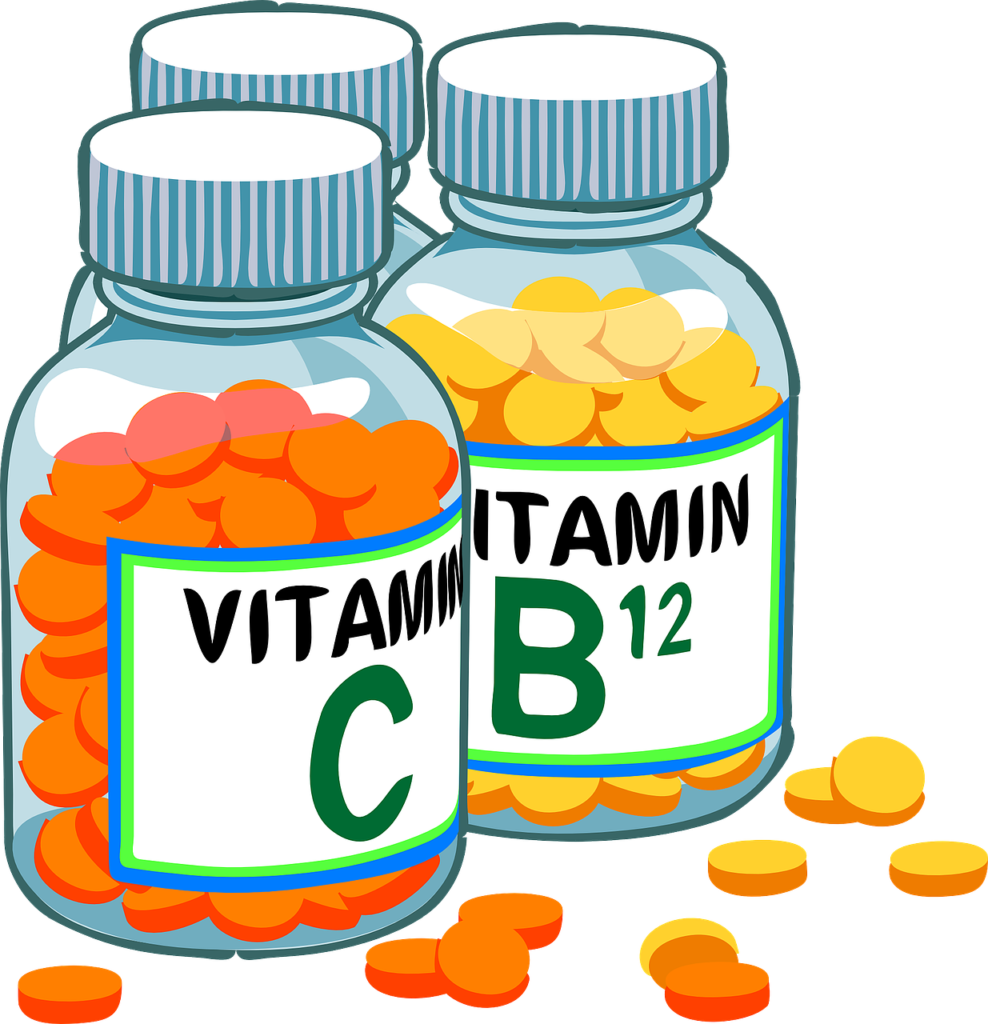A balanced and dietetically correct diet is also a diet that does not lead to deficiencies, especially in vitamins.
Each vitamin is vital for the health of our cells, and a vitamin deficiency would be as harmful as a vitamin excess:
– the ideal is always to vary your diet;
– if our rhythm of life does not always allow us to adopt the right diet: we can add food supplements that will provide the missing dose of vitamins and other nutrients;
– Be careful; however: it should not become a habit, and the use of food supplements should not become systematic.
Role of vitamins
What are vitamins?
Vitamins are essential for maintaining good health. Vitamin intake is all the more important since our body does not produce them.
In developed countries, we have – provided that we have adopted a dietetic and balanced diet – the vitamins we need in our daily diet.
There are standards called “RDA” or “Recommended Daily Allowance” to which we can refer. They are also indicated on the vitamin tubes purchased in pharmacies.
There are 13 vitamins in all:
– 9 water-soluble vitamins (soluble in water): vitamin C, B1, B2, B3, B5, B6, B8, B12, and folic acid;
– 4 fat-soluble vitamins (soluble in organic solvents): vitamin A, D, E, K.
For more information on vitamins and their functions, you can visit the following site: www.guide-vitamines.org.
Why is it so important to know how to dose your vitamins?

When it comes to vitamins, it is essential to find the right balance between too much and too little.
Usually, our diet, if it is rich enough in fresh fruits and vegetables and cereals, will be sufficient for our daily vitamin intake.
However, when we are ill or when we feel a drop in our health, especially during the winter, our doctor may prescribe a vitamin supplement to be taken over a given period.
We are not all equal when it comes to vitamins:
– men and women do not have the same needs;
– growing children, pregnant women, or the elderly often need extra vitamins.
The body may have vitamin-related disorders when it presents:
– a state of hypovitaminosis: this means that the intake of vitamins is insufficient;
– a form of avitaminosis: a total deficiency of one or more vitamins. This remains rare in our developed countries, but it has given rise at certain times in history, particularly during wars, to diseases such as scurvy, beriberi, or rickets;
– a hypervitaminosis or avitaminosis state: the body suffers from an excess of vitamins.
For example, an excess of vitamin B12 promotes a rise in the mortality rate regardless of age. Moreover, a study has shown that this supplementation was associated with an increased risk of hip fracture (source: Flores-Guerrero J et al.: Association of Plasma Concentration of Vitamin B12 with All-Cause Mortality in the General Population in the Netherlands. JAMA. Netw open. 2020; 3(1) e 1919274).
Where to find vitamins, and what is their role?
For a healthy adult, a balanced diet can cover all vitamin needs. He will have to increase the consumption of certain foods if he lacks a type of vitamins without resorting to vitamin tablets, the latter remaining reserved for specific needs and on the advice of a doctor. The upcoming part 2 will give an overview of the different vitamins essential to the body, their Recommended Daily Allowance (RDA), and indicate the foods in which they are best represented.
Hope the above helps you out. Next time your doctor talks about vitamins, you’ll know what he is talking about.
Stay posted!



Pingback: Why Are Vitamins Important (Part 2) – Hello sites